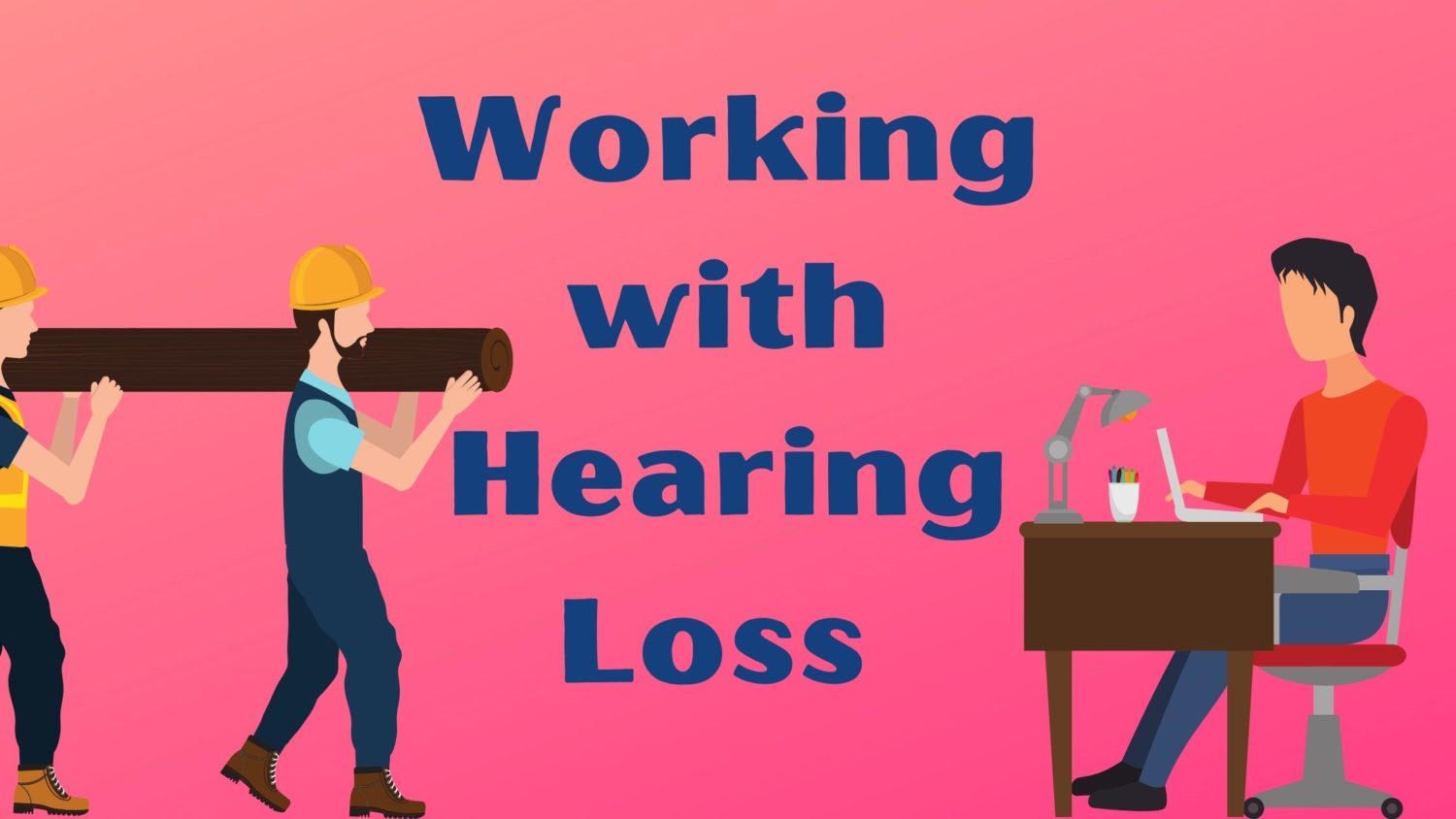- Are Cochlear Implants Worth It? - June 6, 2025
- Tips for Using Hearing Aids in Different Environments - May 27, 2025
- Rechargeable Hearing Aids vs. Battery-operated Hearing Aids - May 16, 2025
Working with hearing loss can be challenging. The workplace is a major way people are exposed to loud noise which can contribute to or worsen existing hearing loss. One of the most common chronic medical conditions, hearing loss impacts over 48 million people in the U.S. Impaired hearing reduces a person’s ability to absorb and process sound which produces a range of symptoms that disrupt daily life. Symptoms make it difficult to manage personal and professional responsibilities which can be particularly challenging in the workplace. Strained communication makes it difficult to navigate the work environment with ease. But there are helpful ways to create a more accessible workplace that allows you to maximize your hearing and communication.
Workplace Hearing Loss
According to the Centers for Disease Control and Prevention (CDC):
- Nearly 30 million people are exposed to hazardous levels of noise at work
- 12% of the working population experiences hearing challenges
- 8% experience tinnitus, a ringing or buzzing like noise in the ears (a common symptom of hearing loss)
- 24% of all cases of hearing loss is caused by occupational hearing hazards
There are two types of occupational hearing hazards that contribute to hearing loss or exacerbate existing impaired hearing:
- Loud noise: exposure to loud noise is one of the most common causes of hearing loss. Sound is measured in units referred to as decibels and sound above 85 decibels is considered potentially harmful for hearing. There are various types of work environments that exceed this volume.
- Ototoxic chemicals: this includes solvents and other types of chemicals that can impact hearing health (carbon monoxide, metals, hydrogen cyanide etc.) that people can be exposed to in the workplace.
The prevalence of workplace hearing loss and exposure to hearing health risks highlights the importance of practicing safety measures.
Tips to Manage Hearing Loss in the Workplace
If you experience hearing loss, there are several ways you can create an accessible environment that best meets your hearing needs. A few ways include:
- Disclose Hearing Loss: people often debate whether they should disclose their hearing loss with employers. It is common to feel anxious about this but being transparent about the condition is incredibly helpful. It allows employers to actively participate in creating an accessible work environment. Employers are required to provide workplace accommodations that support hearing loss – disclosing your hearing loss allows you to have this conversation. Additionally, sharing your hearing loss with coworkers and others you interact with is a great way to advocate for your hearing needs.
- Workplace Accommodations: The ADA (Americans with Disabilities Act, 1990) not only prohibits discrimination on the basis of disability but it also requires employers to provide workplace accommodations. For hearing loss, accommodations can include a range of actions and technologies that support hearing health including: relocating work area to a quieter area, installing a physical barrier between you and any sources of loud noise, investing in assistive listening devices and technologies that are hearing aid compatible, purchasing transcription services that translate speech into text in real-time, etc. In addition to having a conversation with your employer, it is helpful to do some research to learn about which accommodations could be best for you.
- Plan for Hearing Needs: another helpful strategy is to always think about and prioritize your hearing needs. Thinking about this ahead of time can help you best prepare for various work scenarios: requesting agendas prior to meetings, requesting rooms be arranged in a way that allows everyone to be visible which helps with communication, etc.
- Share Communication Strategies: there are numerous strategies that you and others can practice that maximize hearing and strengthen communication. This includes: always facing the speaker, grabbing your attention before starting a conversation, rephrasing rather than repeating, avoiding multitasking while having a conversation, etc. You know what helps you best hear so be sure to share these tips with others!
- Wear Protective Gear: it is important to protect your hearing by wearing protective gear in the workplace. This can include wearing earmuffs, headphones, or earplugs which serve as a protective barrier for the ears. They reduce the amount and impact of loud noise you absorb.
Integrating these practices into your work life can provide significant support that allows you to navigate your work environment with greater control and ease! If you have experienced changes in your hearing and you’ve found it affecting your work and daily life, it is important to take a hearing test. Contact us today to schedule an appointment!

